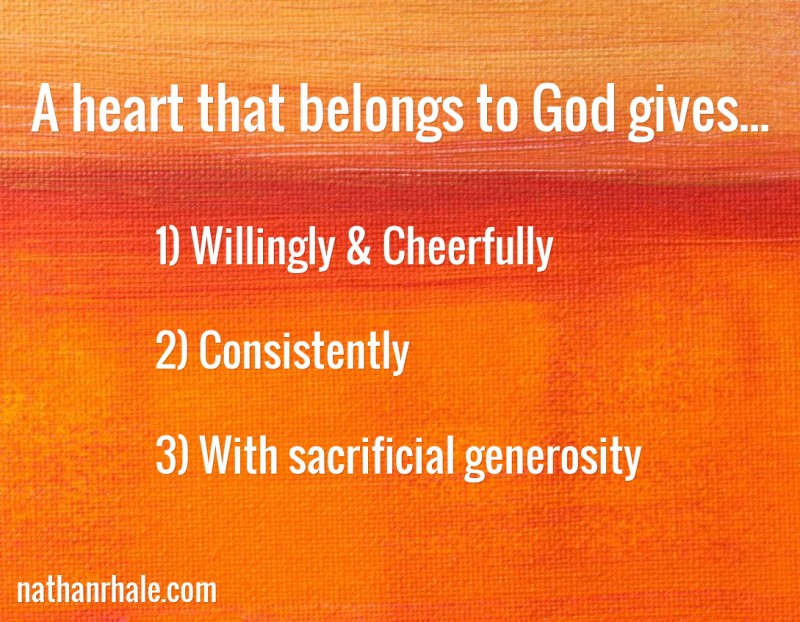-
A brief outline of my spiritual journey
A brief outline of my spiritual journey though theological “phases”:
-
Childlike faith in God in Christ, interrupted by:
-
Fear-based “conversion”, leading to:
-
Semi-fundamentalism, which (due to the faithful way my parents discipled me in the grace and love of Christ as the fulfillment of the law) didn’t last too long because of an instilled resistance to letter-of-the-law thinking which opened the door to:
-
A desperately relieved re-discovery of the grace of God in Christ, which I found articulated most clearly by Reformation Christianity, which in turn formed me in:
-
A sacramental understanding of how God ordinarily communicates himself, a profound mystery that I found pervades all of life, and I understood to be articulated by the Church Fathers, who are presently convincing me of:
-
The truly cosmic implications of a God that is not simply a being but Being itself, that loves humans by becoming a human–Jesus of Nazareth, son of Mary–, that defeats death by dying on a cross, that lives to give life via union with him, in his Spirit.
Through it all there has always been an undeniable charismatic/mystical experience of God walking with me in a million ways:
-
sometimes through intentional practices
-
sometimes in unexpected breakthroughs
-
sometimes through the right word from the just right person at the just right time
-
always somehow intertwined with his Church…
…guiding me always and only to Jesus.
It is not as if I am developing a greater/ deeper understanding of Jesus' “part” in God’s plan. I am only ever more convinced Jesus is God’s plan. Jesus' way is God’s way. Union with Christ isn’t an aspect of life, it is life itself.
And what a journey it is…here’s the thing…I find the news to be better and better the more I believe the simple teachings of Jesus:
“The kingdom of heaven is at hand”
“Blessed are meek”
“Turn the other cheek”
“I have come to give life and life abundant”
“I will draw all men to myself”
(obviously I could go on)
I mean it’s almost too good to be true but somehow I believe it so deeply

-
-
Spiritual discipline is necessary for spiritual direction.
-
This ESV Journaling New Testament could be a game changer for study and sermon prep
 The Productive Pastor, Chad Brooks, just posted a pic of his study notes on Instagram. I had to ask him what Bible he was using. Turns out it was the new ESV Journaling New Testament, Inductive Edition.
The Productive Pastor, Chad Brooks, just posted a pic of his study notes on Instagram. I had to ask him what Bible he was using. Turns out it was the new ESV Journaling New Testament, Inductive Edition.I sometimes create my own version of this via copy & paste and Word, but this bound version of the New Testament text with wide margins and super-generous line spacing could really facilitate meditation, lectio divina, observation notes, definitions, etc. As such, it could also be a great volume to preach from if you wrote your notes directly in the text below each verse…certainly something to think about!
-
Effort Is Not the Opposite of Grace
 Richard Foster, author of The Celebration of Discipline:
Richard Foster, author of The Celebration of Discipline:There’s a back and forth—there is a role that we play in our relational life with God. That role is, as Paul puts it, that we are to offer ourselves as a living sacrifice.
Source: Richard Foster: Effort Is Not the Opposite of Grace | Christianity TodayNow, how do you do that? I’d say primarily—not exclusively, but primarily—through the classical disciplines of the spiritual life. That’s how we offer the mind, the heart, the spirit, the body before God. Then, at that point, the disciplines have come to the end of their tether. There is no righteousness in them at all—none. They just allow us to place ourselves before God. The grace of God steps into that and begins to do work we can hardly imagine.
The point of this is that I cannot change my own heart. I cannot change anybody else’s heart. That isn’t my business—that’s God’s business.
-
Boredom in meditation
I suggest that you received a gift of time, time that did not have to be filled because you were already in God's presence.
- Fr. Carl -
If you'd like humility, try praying for it.
God gives grace to the humble. Are you developing the virtue of humility?
This old Christian prayer–in a form of repeated petitions called a litany–has challenged many, including me. I believe if you pray these things honestly, God will grant your request in his time. It is especially appropriate for the Lenten season; it is combined here with a prayer from my own Anglican tradition.
The Litany of Humility
O Jesus, meek and humble of heart, Jesus, hear me.
From the desire of being esteemed, Deliver me, Jesus.
From the desire of being loved, Deliver me, Jesus.
From the desire of being sought, Deliver me, Jesus.
From the desire of being honored, Deliver me, Jesus.
From the desire of being praised, Deliver me, Jesus.
From the desire of being preferred, Deliver me, Jesus.
From the desire of being consulted, Deliver me, Jesus.
From the desire of being approved, Deliver me, Jesus.
From the desire of being considered, Deliver me, Jesus.
From the fear of being humbled, Deliver me, Jesus.
From the fear of being despised, Deliver me, Jesus.
From the fear of being rebuffed, Deliver me, Jesus.
From the fear of being slandered, Deliver me, Jesus.
From the fear of being forgotten, Deliver me, Jesus.
From the fear of being ridiculed, Deliver me, Jesus.
From the fear of being wronged, Deliver me, Jesus.
From the fear of being suspected, Deliver me, Jesus.
* * *
That others may be loved more than I, Jesus, grant me the grace to desire it.
That others may be esteemed more than I, Jesus, grant me the grace to desire it.
That others may grow in the opinion of the world and I diminish, Jesus, grant me the grace to desire it.
That others may be employed and I set aside, Jesus, grant me the grace to desire it.
That others may be praised and I forgotten, Jesus, grant me the grace to desire it.
That others may be preferred before me in everything, Jesus, grant me the grace to desire it.
That others may be more holy than I, provided I am as holy as I can be, Jesus, grant me the grace to desire it.
* * *
Almighty and everliving God, in your tender love for the human race you sent your Son our Savior Jesus Christ to take upon him our nature, and to suffer death upon the cross, giving us the example of his great humility: Mercifully grant that we may walk in the way of his suffering, and also share in his resurrection; through Jesus Christ our Lord, who lives and reigns with you and the Holy Spirit, one God, for ever and ever. Amen.
-
#Lent, @Twitter, and the real meaning of self denial.
Brothers and sisters, we are now solidly into the season of Lent. Lent is that time of the Christian year where we remember own sin, our own deep need for a savior. We remember we’re made of dust, and we’re going to back to being dust. Perhaps you’re giving something up for the Lent this year…
Christianity Today compiled a list of some of the most popular things people are giving up on Twitter.
You know what the number one thing people are giving up for Lent is on Twitter?
School. It’s understandable. You know you’ve been there.
The number 3 thing was Twitter (not a bad choice).
The 5 thing was social networking (I’ve done this before…it’s quite refreshing).
Of course the usuals like chocolate, alcohol, fast food, and so on were popular. Then there are the people trying to be clever.
Giving up Lent for Lent came in at number 14, and right ahead of that was simply the word “you.”
As in, I’m giving up you for Lent (yikes!).
Do you think there’s more to it than this?
You know, on the one hand, I’m encouraged that the culture at large is at least aware of the season of Lent, and is at least interested in the idea of denying themselves in some way. I do wonder, however if even those of us in the church really have a clear understanding of what it means to deny ourselves the way Jesus talked about it.
“If anyone would come after me, let him deny himself and take up his cross and follow me.” (Mark 8:34 ESV)
What does this mean? What does this look like in our day to day lives?
Self denial isn’t giving up chocolate
 First, let’s talk about what self denial and taking up our cross isn’t. The kind of self-denial that Jesus is talking about is so much more than giving up chocolate for Lent. Giving up sugary snacks might be an admirable form of self-discipline and could be a way to deny an unhealthy sort of pleasure. But I don’t think this is exactly what Jesus had in mind when it comes to discipleship. I once heard on a sermon on Ash Wednesday in which a priest made this statement: “a great proposal demands a great response.”
First, let’s talk about what self denial and taking up our cross isn’t. The kind of self-denial that Jesus is talking about is so much more than giving up chocolate for Lent. Giving up sugary snacks might be an admirable form of self-discipline and could be a way to deny an unhealthy sort of pleasure. But I don’t think this is exactly what Jesus had in mind when it comes to discipleship. I once heard on a sermon on Ash Wednesday in which a priest made this statement: “a great proposal demands a great response.”When someone proposes marriage to another, they are offering a great gift: their entire life. Yet, to accept this gift, you have to say “yes,” which means giving your whole life as well in response. This is how it is with God. He has made a great proposal by sending us Jesus. This proposal demands a great response. If our practice of self-denial is limited to chocolate, I’m not sure we’re getting what the Lenten season is all about…or what following Jesus is all about.
When it comes to taking up our cross, we often speak as if merely enduring inconveniences is somehow giving glory to God. “Poor Amber has to listen to Nathan’s jokes every day. That’s just her cross to bear.” I don’t think so.
Don’t you think real denial of self, a real taking up of one’s cross has to be more than this?
What self denial really looks like
When we think about denying ourselves, we often become self centered. We think about not swearing, or drinking too much or gratifying some other desire of our flesh. We deny ourselves the pleasures of the world, and we do it to try to increase our own personal holiness.
Don’t get me wrong, personal holiness is important, but you can’t stop there. Jesus was perfectly holy, perfectly righteous, but he still went to cross. Aren’t we called to imitate him in this?

Jesus didn’t take up his cross for himself–he suffered scorn and shame and death for you and for me. So our self-denial has to move beyond just personal holiness become self-sacrificial in character. We have to deny ourselves and pick up our cross and follow Jesus for the sake of others.
Let me offer your three examples of what it looks like to deny yourself, pick up your cross, and follow Jesus:
1)
 Archbishop Thomas Cranmer. Thomas Cranmer was the Archbishop of Canterbury at the time of the English Reformation. It’s primarily because of him that we have the liturgy in English that we worship with today. He risked his life to reform the Church, and was ultimately burned alive for his commitment to the Word of God.
Archbishop Thomas Cranmer. Thomas Cranmer was the Archbishop of Canterbury at the time of the English Reformation. It’s primarily because of him that we have the liturgy in English that we worship with today. He risked his life to reform the Church, and was ultimately burned alive for his commitment to the Word of God.2) Recently 21 Christians were killed in Libya by radical Muslims.
 The brother of two of the men prayed for their murderers publicly on television, thanking them for publicizing their profession of faith in Jesus, and saying “This only makes us stronger in our faith because the Bible told us to love our enemies and bless those who curse us.” This man set aside any desire for revenge and retaliation for the sake of even of those who killed his own brothers!
The brother of two of the men prayed for their murderers publicly on television, thanking them for publicizing their profession of faith in Jesus, and saying “This only makes us stronger in our faith because the Bible told us to love our enemies and bless those who curse us.” This man set aside any desire for revenge and retaliation for the sake of even of those who killed his own brothers!3)
 My parents, Jeff & Renée. Both of them left established, comfortable careers to become missionaries in Africa. My mom was playing violin for world-class orchestras. My dad was minister of music at a large church. Things were going well. They gave up safety, security and all kinds of certainty to take their young children with them and plant churches in one of the least-reached places on the planet.
My parents, Jeff & Renée. Both of them left established, comfortable careers to become missionaries in Africa. My mom was playing violin for world-class orchestras. My dad was minister of music at a large church. Things were going well. They gave up safety, security and all kinds of certainty to take their young children with them and plant churches in one of the least-reached places on the planet.Do these examples sound radical?
Do they sound extreme?
I hope so.
“Deny yourself, pick up your cross, and follow me” is a radical, extreme statement. Remember…a great proposal requires a great response. How are you living a radically sacrificial life for the sake of others?
But…what if you are not a Reformer? What if you are not in physical danger because your commitment to the Word? What if you are not called to be a full-time missionary?
First, you are called to be a Reformer. You are called to stand firm on the Word of God and be constantly reforming your life to that standard. And believe me, that will always entail risk. Perhaps not to your physical person (at least in the short term in the United States)…but it will entail relational risk. It will mean changing your life in ways that may be scary to you. In ways that will be unsettling and profoundly uncomfortable at first. And you are called to embrace that, and lead others into it.
Here’s the thing: if you’re following Jesus, sooner or later will be presented with your opportunity to take up your cross and join in Christ’s suffering. I will go so far as to say that suffering with Christ is a necessary part of the Christian life. The Apostle Paul reminds us,
The Spirit himself bears witness with our spirit that we are children of God, and if children, then heirs—heirs of God and fellow heirs with Christ, provided we suffer with him in order that we may also be glorified with him. (Romans 8:16-17 ESV)
If you are living a life of habitual risk-avoidance you will certainly suffer less. But you will also miss out on really following Jesus.
What do you really believe?
Please don’t get me wrong. I never want to encourage suffering for suffering’s sake. That would be sick and perverse. We don’t embrace suffering because it is inherently good…it’s not, and we rightly pray to be relieved of it. But when we are suffering for the sake of others and for Christ we can see God’s hand it in, we can see it’s worth it because of what is waiting for us on the other side.
- Someone’s else’s life is worth suffering.
- Experiencing the power of the Holy Spirit is worth suffering.
- Building the Kingdom of God is worth suffering.
- Knowing Jesus more is worth suffering.
- Eternal life is worth suffering.
“For whoever would save his life will lose it, but whoever loses his life for my sake and the gospel’s will save it.” (Mark 8:35 ESV)
This is the counter-intuitiveness of the Gospel, and Jesus is crystal clear here. What he calls us to may look like death, but only in the short term.
Do you believe this? I mean, really deep down do you believe it? Because if you do, you will act on it!
You remember how Paul said it…
“For to me to live is Christ, and to die is gain.” (Philippians 1:21 ESV)
Paul believed it, and acted on it.
In order to deny yourself, to take up your cross, and to follow Jesus you’ve got to believe the believe it deep in your soul when you pray,
“You make known to me the path of life; in your presence there is fullness of joy; at your right hand are pleasures forevermore.” (Psalm 16:11 ESV)
This is the truth.
And this is our hope!
And we are fools if we cave in to our own selfishness and the lies that the world will tell us.
“For what does it profit a man to gain the whole world and forfeit his soul? For what can a man give in return for his soul? For whoever is ashamed of me and of my words in this adulterous and sinful generation, of him will the Son of Man also be ashamed when he comes in the glory of his Father with the holy angels.” (Mark 8:36-38 ESV)
This is the call and cost of discipleship:
Not reserved, but radical.
Not self-centered, but self-sacrificial.
Not grudging, but giving.
Not haughty, but holy.
Not only a promise of life forever, but an invitation to die today.
Dietrich Bonhoeffer wrote,“When Christ calls a man, he bids him come and die.”
The great proposal has been made. Jesus lived and died and rose again for you and today, and he has spoken to you..
What’s your response?
Will you come?
Will you die?
Will you truly live?
-
If your heart belongs to God, so does everything else
When my wife Amber and I married each other, a lot changed for both of us in the days immediately after our marriage. For instance, we went from two separate bank accounts to one, joint bank account.
All of a sudden someone else could see everything I was spending my money on. I remember well the days before I got married, when I could buy video games and technological gadgets without really asking anyone for permission, just because I wanted to.
Those days are long, long gone.
Things changed because I became responsible for more than just myself.
Before we got married, I had a car and, Amber did not. After we were married, if someone asked Amber if she had a car, she’d say yes, of course I do. My things stopped being my things and became our things. In effect, my stuff became her stuff. And while it took some getting used to, I really didn’t mind. Why is that? Because the relationship was worth it.
Because on a summer day in 2005, I gave Amber my heart, and everything else followed from that.
Isn’t really the same with any deep relationship? We have these expressions that we reserve for our best friends and people we want to honor…”what’s mine is yours” “Mi casa es tu casa.”
If this is how we relate to other human beings, how much more should we give to God?
St. Mark shows us what it looks like in someone’s finances when they’ve given their whole heart to God.
The Widow's Offering
And he sat down opposite the treasury and watched the people putting money into the offering box. Many rich people put in large sums. And a poor widow came and put in two small copper coins, which make a penny. And he called his disciples to him and said to them, “Truly, I say to you, this poor widow has put in more than all those who are contributing to the offering box. For they all contributed out of their abundance, but she out of her poverty has put in everything she had, all she had to live on.”
(Mark 12:41-44 ESV)
When we give our heart to God–when we say “you are worth everything to me, it is you I am going follow, it is you that I’m going to find my identity in,” then doesn’t it make sense that everything will follow? Giving our life to God can mean nothing less than our time, our energy, our efforts, and yes, even our money. There is no reason our finances should be exempt from this. Our entire lives become our responsibility to steward toward the furtherance of God’s Kingdom.
A private affair?
We don’t like to talk about money in our culture. It’s considered to be a private affair. Here’s the thing though: Jesus wasn’t afraid to talk about money. Not at all. I made a chart to illustrate!

This graph is based on simple word searches from ESVBible.org.
I found about 80 passages that deal with money or use money as an illustration, which is significantly more than many other very important topics like hell, the Kingdom of Heaven, and faith.
Here’s just a sampling of what Jesus had to say about money, wealth, and treasure:
“You cannot serve God and money.” Matthew 6:24
“The Pharisees, who were lovers of money…ridiculed him.” Luke 16:14
“For where your treasure is, there your heart will be also.” Matthew 6:21
“Take care, and be on your guard against all covetousness, for one’s life does not consist in the abundance of his possessions.” Luke 12:15
In contrast here are some of Jesus' thoughts on poverty:
“...when you give a feast, invite the poor, the crippled, the lame, the blind...” Luke 14:13
“If you would be perfect, go, sell what you possess and give to the poor, and you will have treasure in heaven; and come, follow me.” Matthew 19:21
This one is truly staggering, evening paradigm-shifting:
“Blessed are you who are poor, for yours is the kingdom of God.” Luke 6:20
So the first thing we have to realize is that it’s okay to talk about money. Jesus did it! We’re meant to talk about it because the money’s not ours anyways. The second thing we have to realize just from this short survey is that Jesus’ attitude and approach to money is drastically different from our natural instinct.
Our culture privileges, idolizes, and empowers the wealthy. Possessions are status symbols because one’s status is determined by what one can afford. Jesus takes a different approach. For Jesus, everything belongs to God, and we are just managers.
Is that how you see yourself when it comes to your finances?
A matter of the heart
As you think about your life and how you approach your finances and what Jesus had to say…you have to ask yourself hard questions:
- How much of my heart am I really giving to God?
- Does my heart really belong to God?
- What is my treasure? Is it a thing, or things? Or is it Jesus?
That’s what is so beautiful about the passage from Mark. Jesus saw what the widow gave and had to comment because she went all-in. She gave everything she had to live on. And you know Jesus has gone all-in for you. Are you all in for him?
And the widow wasn’t giving for show! Everybody else was just throwing coins in, and enjoying the attention they would get as a result. But not the widow. No, the widow gave what she could, without any fanfare. But didn’t matter to Jesus how much she gave…it was the condition of the widow’s heart that mattered to Jesus.
That’s how it is with you and I too.
How much money should you give to your church?
It’s not a matter of whether or not you are giving a 10% “tithe”. Honestly, that would be the easy way out. You could think that if you’ve given your 10%, you’re good to go and the rest would be yours to do with as you please.
The whole 10% rule thing is a great place to start and a valuable part of the Old Testament economic system, but if we approach it as some sort of magic number or a strict rule that we just have to follow, we’re missing the point.
What did he tell the Rich Young Ruler who said he had been keeping the law faithfully his whole life? “Sell all that you have…”
Look, Jesus doesn’t demand 10% of your money. He asks for 100% of your heart and he wants whatever amount that you give to flow from that.
[bctt tweet=" Jesus doesn’t demand 10% of your money. He asks for 100% of your heart."]
The point isn’t whether or not you are giving 2%, 10%, or 50% to your local church. That’s not what Jesus is looking for. That’s not how a heart that belongs to God looks at it. It’s about whether or not 100% is being stewarded toward the Kingdom of God. This includes paying your rent and providing for your family and even enjoying life and gifts God has given you, but you’ve got to check your heart often to make sure you’re not hoarding or becoming selfish.
How to know you are giving from a heart that belongs to God
Here are 3 indicators that your giving coming from a heart belongs to God:
- It’s willing and cheerful. “God loves a cheerful giver” (2 Cor. 9:7).
- It’s a consistent pattern. The habit of giving is replete in both Old and New Testaments.
- It is sacrificially generous.

“Sacrificially generous” doesn’t necessarily mean that God is calling you to sell everything you own for a particular purpose right this second. I’m not saying it for sure means you shouldn’t buy a nice TV or new car. However…it might mean those things! You need to make sure you’re willing put others ahead of yourself. I mean, the widow gave everything she had to live on. Jesus gave everything he had to live on. Are you willing to follow Jesus in this?
If this sounds like a hard saying, good. This is hard. This kind of trust requires wisdom and faith and sacrifice.
But the relationship is worth it.
You make known to me the path of life; in your presence there is fullness of joy; at your right hand are pleasures forevermore. (Psalm 16:11 ESV)
Do you believe this today?
The impossible becomes reality
Giving God control in the area of finances will free you to build his Kingdom in ways you never even thought possible. God will accomplish amazing things in and through you that you might not even be able to imagine.
 Consider the example of John Wesley, the Anglican priest that started the Methodist movement in the 1700s. He made a good living (in fact he was quite wealthy) and spend most of it at first like most people…on things like entertainment and furnishings for his apartment. After an incident where he encountered someone in need but realized he had spent all of his money, things changed. One writer tells what happened:
Consider the example of John Wesley, the Anglican priest that started the Methodist movement in the 1700s. He made a good living (in fact he was quite wealthy) and spend most of it at first like most people…on things like entertainment and furnishings for his apartment. After an incident where he encountered someone in need but realized he had spent all of his money, things changed. One writer tells what happened:Wesley began to limit his expenses so that he would have more money to give to the poor. He records that one year his income was 30 pounds and his living expenses 28 pounds, so he had 2 pounds to give away. The next year his income doubled, but he still managed to live on 28 pounds, so he had 32 pounds to give to the poor. In the third year, his income jumped to 90 pounds. Instead of letting his expenses rise with his income, he kept them to 28 pounds and gave away 62 pounds. In the fourth year, he received 120 pounds. As before, his expenses were 28 pounds, so his giving rose to 92 pounds.
Wesley felt that the Christian should not merely tithe but give away all extra income once the family and creditors were taken care of. He believed that with increasing income, what should rise is not the Christian’s standard of living but the standard of giving.
John Wesley knew that if his heart belonged to God, so did everything else.
A sacred trust
We’ve all been given a sacred trust in relationships, opportunities, physical resources, and money. If you believe your life is not your work, but God’s work to build his Kingdom, you have to be cheerful, consistent, and sacrificially generous in how you steward your entire life.
Of course, there’s so much more to it than money. Your whole heart must belong to God.
And if your heart belongs to God, so does everything else.
-
How a dreaded chore became a sacramental action
Once upon a time I hated washing the dishes.
The left over, sticky food residue was smelly and repulsive to the touch, especially after procrastinating. It seemed like a waste of time, a boring chore that had to be done every day. Everyone else seemed to be enjoying themselves with conversation, entertainment, or creating more work for me by eating dessert or drinking coffee while I was still cleaning up. It wasn’t torture, but it sure wasn’t fun.
I hated washing the dishes.
Then I got married to a woman who hates washing dishes more than I do. We entered into our marriage with a loose agreement: she would cook, I would clean.
Turns out she was (and still is) an amazing cook, but I wasn’t so great at consistently washing the dishes. I still disliked doing them, and still procrastinated. But I disliked it a little less, because I knew that what I was doing was contributing to the home and to the relationship we were building together.
Over time, I came to appreciate the feeling of satisfaction that comes from doing a simple task well. The rhythm of washing, rinsing, drying, and putting away became a place to think and learn and even pray. I started to appreciate how much less disgusting it was to wash the dishes immediately after meals. I found I was especially thankful for warm water (especially in the winter) and–when we moved to place that had one–electricity for the dishwasher to take most of the hard work.
My wife always says thank you when I do the dishes, sometimes with a hug or a peck on the cheek, and that becomes for me a sacred–dare I say sacramental– moment. The wonderful meal cooked out of love for me and the children, the washing and cleaning of pots and pans and plates, a thank you kiss. It’s all part of the liturgy of the family, and after all, a sacrament is an outward sign of an inward grace.
Now, I know washing the dishes cannot be a sacrament in same sense as Holy Communion, Baptism, or even Marriage. Yet in some small way, washing the dishes has transformed from a necessary task, to a discipline, to even (on rare occasions) a treasured ritual.
A once dreaded chore has become a precious, outward sign of the inward grace of being spiritually bound to my family. Somehow, washing the dishes became a sacramental action.
Once upon a time, I hated washing the dishes. I still don’t always like washing the dishes.
But now, I love washing the dishes.
-
Stop resisting God's grace. Start resisting false gods.
My pastor has been preaching on it. My friends and coworkers have been practicing it. It keeps coming up in conversation.
Sabbath.
It is a consecrated, dedicated time of rest. It is a time of remembrance of all that God has done. It is a covenant sign that we are God’s people; we do not belong to this world.
It is a gift.
It is not about hard-and-fast rules, but avoiding a legalistic approach has become my excuse to all but abandon Shabbat.
It’s obvious that individuals and societies are less healthy for not observing the Sabbath. The cycle of production and consumption never ends in a Sabbath-less life. We allow our actions to be driven by an anxious-yet-subtle whisper in our heads, “what if…
What if I don’t work today? How will I pay the bills? What if I don’t commit to this social event? How can maintain all of my friendships? What if I don’t volunteer for this church program, won’t I let my congregation down? What if I get bored?
This is not the Life Abundant that Jesus came to give us.
Sabbath is resistance to the false gods of anxiety, consumerism, pride, and restlessness.
Our Spirit-filled new life in Christ is one of freedom from slavery to sin, worry, and ignorance. We are even set free from slavery to ourselves.
We are free, and God takes care of us now.
Practicing Sabbath is an act of faith. It is to act in trust of God’s goodness.
As I mediate on these things, I realize it’s time for me to stop resisting God’s grace, and start resisting false gods. It’s time for me to quit submitting to the yoke of slavery and to live free. It’s time to begin taking Sabbath seriously again.
Do you also feel like it’s time to begin treating the Sabbath with more seriousness? Let me know in the comments!
-
4 reasons I’m afraid of silence
If you’re like me, you fill most waking moments with some sort of noise. Maybe it’s music, the radio, TV, Pandora, or podcasts. Too often, I find that the noise I’m shoving in my ears is my own voice.
If it’s not literal noise, there’s figurative static. Meaningless and mindless Facebook scrolling, YouTube ridiculousness, whatever controversy is exploding on Twitter.
I’ll do pretty much anything to avoid the silence. It makes me uncomfortable. Why?
I think it’s all about fear.
1) I’m afraid of being bored.
Why am I deathly afraid of boredom? I read somewhere that boredom breeds creativity. Maybe I’m afraid of the creative impulse…it always pushes me toward art and thus risk. And if I’m honest I know risk means the possibility of pain…and comfort is a value I hold all-too-dear.
And then there’s the fact that if I quit filling up every moment with noise I could listen to myself, to others, to God.
2) I’m afraid to face the truth about myself
I’m afraid to really confront myself because my pride would likely be wounded at what I would be forced to admit upon an honest examination. I’m not the husband, father, or minister I should be. The older I get the more I come to grips with the fact that I just won’t measure up this side of Jesus coming back. The more I live with this, the more I don’t like it.
3) I’m afraid of not being appreciated
I don’t listen to others because on some level I value what I have to say more that what you have to say. Plain and simple. It’s not something I’m proud of, but it’s ultimately some sort of coping mechanism for my own insecurity regarding the objective worth of my ideas. So I prove it to myself by monopolizing conversations at the expense of others.
4) I’m afraid of holiness
If I sit in silence long enough there is a good chance I might actually hear the voice of God. This is quite honestly a terrifying possibility, because God will call me to change. He will draw me toward deeper obedience and I know that means leaving treasured sins and long-held personal preferences behind in favor of being conformed to the image of Christ and following him into the depths of self-denial and discipline.
What if today is the day that God leads me to my own cross?
Silence is scary. That’s why why we avoid it so strenuously.
-
This quote has been haunting me for weeks
This quote by one of my favorite Christian authors has been haunting me for weeks.
No short cut exists for a deeper spiritual life...the man who would know God must give time to Him.
~ A. W. Tozer
Haunting me because I know it is true and no talk of “quality over quantity” can ever fully extinguish the conviction I have in my own soul that I don’t spend enough time with God.
I know all too well (when I am being honest with myself) that the first thing to go when I get really busy is my devotional time. I’ve gotten better at holding steady in periods of moderate busyness, but when things start really going crazy I tend to simply forget. Talk about twisted priorities.
When my mind starts going a million-miles-a-minute I just don’t yet have the discipline to quiet it for long enough. I need to work on that.
I’m learning to rest, but it’s not easy.
I realize that often, I’d sooner take an hour to read a book about communion with God than actually give him those same moments. I think it’s because it’s so much easier to absorb someone else’s thoughts than put in the effort to still myself enough to hear from God. Listening–really listening–often takes so much more effort than speaking.
I’m learning that it takes a certain quantity of time to learn how to have the highest quality time.
It’s become newly apparent to me that God wants a real, personal relationship with me and you. You and I both know real relationships require an investment of time in order to deepen and grow. Real relationships require giving up some things because being with the other person is simply worth it.
Who could be more worth it than God?
-
It won't always be pleasant, but I promise it will be worth it.
One of best things my wife and I have done for our marriage is intentionally making time to spend together, just the two of us. We’ve learned that this is absolutely essential for maintaining the close relationship that we need in order to have a healthy marriage and family.
We try to make time for a least a few moments each day, but sometimes we need a bit more time. So we have regular date nights where we can spend a couple hours together. Every now and then we’ll have the opportunity to spend the majority of the day together, just us. Those are treasured times.
Of course, they don’t just happen. Amber and I have to plan them, commit to them, and follow through. Intentionally making time for each other is a discipline.
I think that if you look at most of your relationships, you’ll find that you do this with your closest friends, mentors, and advisers. You have that extended, dedicated time for each other.
Don't forget God.
Do you do this for God? Do you spend time alone with God daily, weekly? Do you ever set aside a whole day or a large portion of your day just for prayer, Bible study, and sitting quietly with him?
Every analogy breaks down at some point, but here are some ways spending alone time with God is similar to dedicating exclusive time to any relationship:
- It's a bit awkward at first; you might not know what to say
- This will inevitably drive you to say more than you should
- After a significant time investment, that awkwardness will melt away to an easy familiarity
- Silence will then often be sweet and full of meaning
- Even after this, it will take work to maintain the relationship; you will be constantly challenged
Tips to develop a habit of spending alone time with God
First, determine if you’re ready to get outside your comfort zone. God never leaves us as we are. When we come into his presence we leave changed people (Tweet this). He is always at work in us. When you dedicate time to being alone with God, you are opening yourself up to a new level of intimacy with him. It won’t always be pleasant, but I promise it will be worth it.
Schedule your time. What gets scheduled, gets done. This is–in my opinion–a fact of life. Put your devotional time on the calendar, and treat it like you would any appointment with a VIP.
Don’t over-program. It’s great to go through a devotional book, keep a prayer journal, and perhaps even explore the liturgy as part of your personal time with God. That said, don’t forget to save a few moments to just be with him, without talking. I recommend Lectio Divina as way to practice listening to God.
What’s your greatest challenge when it comes to spending alone time with God? Let me know in the comments!
-
How and why you should keep a prayer journal
Keeping a prayer journal has been simultaneously one of the most rewarding and one of the most difficult decisions I’ve tried to stick with. Ultimately it’s been worth it, despite my own inconsistencies.
What is a prayer journal?
A prayer journal is a little different from simply keeping a diary, because the point isn’t just to record your thoughts, feelings, and observations (although a prayer journal might include those things). Instead, a prayer journal serves to record your conversations with God. Not just requests, but what he is teaching and revealing to you, and what you are saying to him.
The great thing about writing down your prayers and answers to prayers (both positive and negative) is that you build a record of God’s faithfulness in your life over time. You see how you change in response to your circumstances and in response to what God is doing in your life.
Getting started with a prayer journal
If you’re already in the habit of keeping a journal, then you may simply integrate your prayer requests, thoughts, prayers, and petitions as part of what you are already doing. Personally, I’ve been keeping my prayer journal separate from my other diary, however I’m now considering integrating the two.
The best piece I of advice I can give you on starting this discipline is this: don’t succumb to the external–and more often, internal–pressure to keep a “literary” journal full of complete sentences and well thought-out ideas. This is a place just for you and God. Let it take whatever shape works for you. That may be in the form of a “letter” to God, or not. Mine is often just a few bullet points, something like this:
- Praying for the kids as they start school today
- Wisdom in financial decisions
- Thankful for answered prayer for help with ordination costs
- Wondering how I can be a better leader
- Need greater trust in God's provision
- St. John's language about the absolute importance of loving one another is really sticking with me the last couple of weeks
Recommended tools for keeping a prayer journal
I currently use DailyDiary, a free service that lets you keep a journal via email for my primary “journal.” It’s quite excellent if you’re already in your email a couple of times per day. Just set it up to shoot you an email at whatever time you want, with whatever prompt you want (e.g., “what’s on your mind?"). DailyDiary will keep a secure and private website with your replies.
Field Notes makes great little journals that I have used to record my prayers and notes for specific events or seasons of life before. I highly, highly recommend them. Made in the USA and truly a pleasure to use.
The ESV Journaling Bible is another way to write your journal that I really love. It comes in few different covers at various price points (I love this one). This Bible has extra-wide margins with lines so that you can record what God is teaching you as you pray the Scriptures. I’m looking forward to going all the way through one of these in a few years. I imagine giving your filled Journaling Bible to your children or spouse could be very meaningful as well.
What’s keeping you from starting a prayer journal? If you’re already keeping one, how has it had a positive impact on your faith? Let me know in the comments!
-
Are you feeling far from God?
Are you feeling far from God? You’re not alone. Even the greatest saints have struggled with doubt and the fear of being abandoned by God.
Remember Doubting Thomas? Even Mother Theresa endured a decades-long loss of feeling God’s presence.
Christians throughout the centuries have called this experience “The Dark Night of the Soul.”
16th century mystic John of Cross is known for his poems regarding this difficult (yet rewarding) experience. In this short, 3 minute video I’ll share some insight from John of the Cross that has helped me–and might help you–to make sense of the darkness.
-
5 powerful ways to keep growing when you can't find a spiritual mentor
I’ve written about how to find a spiritual mentor, but one thing is for sure: it’s not an instant process. It can sometimes take a while to find the right person–or for the right person to find you. If you’ve not yet found a spiritual mentor, take heart! Don’t forget these five ways to continue to grow as you pray and think about who might be a good mentor.
1) Value one-off conversations
You may not be able to have an ongoing arrangement, but don’t forget the value of asking someone you respect in the faith to lunch every now and then. Perhaps you can make a habit of asking one person from whom you know you can learn to coffee once a week. Then remember to do more listening than talking.
2) Find mentors in books
I consider C. S. Lewis a spiritual mentor, even though he died long before I was born. I’ve read almost everything he’s written on Christianity and he is an author I return to frequently for reference when I come up on a theological problem. Tim Keller and N. T. Wright have also become mentors for me this way. Find a solid author that resonates with you, and begin to read all of their work.
3) Create a life plan
Creating a life plan is an essential way to sharpen your focus and gain clarity on how to move forward in life. There are plenty of the self-guided programs out there; I recommend Storyline by Donald Miller. Going through Don’s process will take you a few weeks, but the time investment will pay off. You’ll begin to better understand what’s really important in your life and the areas that you need to be mentored in.
4) Find someone you can mentor
Everyone needs a mentor and to be mentored, depending on the season of their life. Consider whether it might actually be the time for you to reach out and find someone to invest in. As I’ve made mentoring others an integral part of my life, I’ve experienced tremendous personal and spiritual growth.
5) Continue your education
Enroll in classes online or at a local college that will benefit you spiritually. Consider church history, systematic theology, or even a class in spiritual formation. Read blogs and listen to podcasts that will help think through spiritual issues and gain biblical knowledge.
How have you continued to make spiritual growth a priority while you look for a mentor?
-
5 practical ways to guard your personal time with God from distraction
 I recently asked my Facebook friends what distracted them from their personal time with God. Here are some of the answers:
I recently asked my Facebook friends what distracted them from their personal time with God. Here are some of the answers:- Myself
- Kids
- Job
- Sleep
- Church (!)
As a “ministry professional” with young children, I get most of these reasons. Every day our Western culture bombards us with demands for our time and attention, and it’s hard to say no.
If God really is who he says he is, however, and we really believe that, we’ve got to learn to focus in on what’s really important: him. Here are 5 practical ways to guard your personal time with God from distraction. Each one takes time, planning, and commitment, but it will be so worth it.
1) List the reasons why it's important
Writing things down is powerful for creating motivation and making ideas concrete. List the reasons why you believe spending personal time with God through the Bible, prayer, and meditation is essential. Keep this list in the place you tend to get the most distracted (say, taped to your computer monitor).
2) Schedule your quiet time
Things that get scheduled get done. Make the effort to integrate your personal time with God with your schedule. Again, put it on paper! Find those 10-20 minute windows of opportunity in your day and determine to set them apart for God instead of reading articles online or socializing. Set up reminders on your phone so you don’t forget!
3) Enlist your spouse's help
I know firsthand how difficult it is to find any kind of alone time when you have small children. You’ll have to touch base with your spouse and see if they can help you by taking the kids for 20 minutes while you close your bedroom door or step outside to walk and pray. Don’t forget you can do this for them, too. What a great way to minister to each other!
4) Check the Bible before you check Facebook
This one is really simple. Just give yourself a new rule for life: no checking Facebook or social media until you’ve spent time in the Word. If you’re getting sucked into your timeline or feed and wondering where all the time went, this small adjustment will keep your priorities straight in your head and in real life.
5) Move to a different location or a dedicated space
It often helps me to move away from my computer for my devotional time. I don’t necessarily even have to go to a different room of the house or head out to a park (although that’s nice). Sometimes just moving from my desk to a chair in the living room can help clear my mind and “reset.” If you have the room, setting apart a dedicated space for prayer in the form of a home altar, prayer room, or closet is helpful too.
What other ways have you fought distraction from your personal time with God?
-
What to do when you feel spiritually stuck
Do you ever feel like you’ve hit a wall when it comes to spiritual growth? Does there seem to be something missing, even though you are pretty consistent with your prayer time and you read from the Bible regularly?
I’ve been there too. For me, the key to breaking through was trying something new…in my case, Christian meditation in the form of Lectio Divina.
For though by this time you ought to be teachers, you need someone to teach you again the basic principles of the oracles of God. You need milk, not solid food, for everyone who lives on milk is unskilled in the word of righteousness, since he is a child. But solid food is for the mature, for those who have their powers of discernment trained by constant practice to distinguish good from evil. (Hebrews 5:12-14, ESV)
According Hebrews 5:12, the foundational knowledge of salvation and the Gospel should be intimately familiar. The basics have to always be there (to continue the food analogy, we still need dairy in our diet) , however as we progress in the faith it is essential to grow in your understanding of doctrine and God’s character beyond “repentance from dead works…” (Heb. 6:1).
Taking on an unfamiliar spiritual discipline is one way we can progress in our understanding of God’s character and doctrine.
A new-to-you discipline can open doors to experiences and knowledge simply because of its unfamiliarity; it can force you to see things from a different perspective.
When you are compelled to consider spiritual concepts and situations in a new light, you have no choice but to practice your powers of discernment–bringing you to greater maturity in Christ.
-
If I had to choose between all the spiritual disciplines
Bible memorization is absolutely fundamental to spiritual formation. If I had to choose between all the disciplines of the spiritual life, I would choose Bible memorization, because it is a fundamental way of filling our minds with what it needs. This book of the law shall not depart out of your mouth. That’s where you need it! How does it get in your mouth? Memorization.
~ Dallas Willard (“Spiritual Formation in Christ for the Whole Life and Whole Person” in Vocatio, Vol. 12, no. 2, Spring, 2001, 7). -
3 highly effective methods for memorizing Bible verses
There’s no doubt that memorizing Bible verses is difficult for many people (myself included!). A big aspect of the challenge for me has been that I haven’t been very methodical about memorizing. I’d simply repeat a verse a few times and hope that it stuck, with no plan for review. Going about memorizing halfheartedly like this is a recipe for discouragement and–ultimately–failure.
Effective methods for memorizing Bible verses always involve an intentional approach to internalizing new verses and reviewing old ones. Don’t think that there is a magic formula out there for doing this without putting in the hard work.
You’ve got to commit to the process and show up daily.
Here are three ways I’ve found to effectively memorize Bible verses.
1) The John Piper method (verbal repetition)
I first heard about this simple way to memorize passages from the Bible on an episode of the Ask Pastor John podcast. Dr. Piper bases his approach on this booklet by Andy Davis.
For this method, you simply read the verse you’re memorizing ten time aloud, looking at the page. Then you say the verse ten times aloud without looking. Done for the day!
The second day you say your old verse ten times again for review, and follow the same procedure as before for your new verse.
On the third day say yesterday’s verse ten times, then the previous days' verses together, then the standard procedure for your new verse. So once you get going, the routine is like this:
- Yesterday's verse first (10 times)
- Old verses all together (1 time)
- New verse (10 times reading aloud, 10 times without looking)
This the method I use primarily and I love it for its simplicity and structure.
2) Memverse (online software/typing/game)
Memverse is a great piece of software. I have used it extensively and really enjoy the benefits of memorizing this way, because it turns the learning and review process into a sort of game. You start by typing out the words to your verse. Each time you type it out, the software removes a word or two which you fill in by memory. You continue for several rounds until you’ve learned the verse.
There are “badges” and awards for you to unlock, charts to track your progress and time spent on memorizing, as well as an automatic review system. There’s also a built-in community for encouragement and inspiration.
If you spend a lot of time at your computer and think it wouldn’t be hard for you to discipline yourself to log in daily, this could be the way to go for you.
3) Index cards (the classic!)
Using index cards for memorization is a useful way to bring your verses and passages with you every where you go, without necessarily carrying around your whole Bible.
To learn a verse, write it out on one side of an index card. On the other side, write the reference. Use this like a flash card, saying the verse until you know it well and can recite it just from seeing the reference. You would do this each day for a new verse and keep your stack of cards handy for review.
As the number of verses you have memorized grows, you may need to organize your cards and review schedule with a small index card binder or file box.
Here are some free Bible flash cards that you can print at home
What methods have you used to effectively memorize Bible verses?
-
3 Biblical reasons memorizing Bible verses is essential
 I’m convinced we act out of our most deeply held beliefs.
I’m convinced we act out of our most deeply held beliefs.So, before I was ready to commit to a daily habit of memorizing Bible verses, I had to really buy in to the importance of doing so. Honestly, it’s hard. It takes time and effort, so I know I’m not going to follow through if I don’t really think it’s worth it.
Of course, I accept the Bible as authoritative in matters of faith and practice, so I had to see what the Bible had to teach me. Do I really need to make memorizing the Scriptures a regular part of my discipleship? Just a cursory study convinced me that yes, memorizing bible verses is essential.
1) Jesus' devotion to the written word of God sets an example that demands to be imitated.
Like all first-century Jewish males, Jesus was brought up saturated in the Hebrew Scriptures. He likely memorized large portions of the Torah (the first five books of what Christians call the Old Testament), if not all of it. Jesus demonstrated his command and recall of the Scriptures throughout his ministry. Jesus definitively proves the importance of having the Scriptures memorized when uses passages to combat temptation in the wilderness (Matthew 4).
2) The Bible is replete with explicit commands and exhortations to commit the Scriptures to memory
I have stored up your word in my heart, that I might not sin against you. (Psalm 119:11, ESV)
Let the word of Christ dwell in you richly, teaching and admonishing one another in all wisdom, singing psalms and hymns and spiritual songs, with thankfulness in your hearts to God. (Colossians 3:16, ESV)
This Book of the Law shall not depart from your mouth, but you shall meditate on it day and night, so that you may be careful to do according to all that is written in it. For then you will make your way prosperous, and then you will have good success. (Joshua 1:8, ESV)
3) Memorizing Bible verses is a way we can draw near to Christ
If you abide in me, and my words abide in you, ask whatever you wish, and it will be done for you. By this my Father is glorified, that you bear much fruit and so prove to be my disciples. (John 15:7-8, ESV)
By internalizing the holy words of Jesus, the “author and perfecter of our faith” (cf. Heb. 12:2) we draw close to him, live in him, and our desires are conformed to his. In this we become more like him, and our witness gains credibility.
What other Scriptural reasons come to your mind for memorizing Bible verses?
-
Christian spiritual growth: the one discipline that can change everything
Of all the spiritual disciplines, which is the most important discipline for Christian spiritual growth?
For the longest time if someone would ask me that question, I would answer “prayer” without hesitation. After all, prayer forms the basic building block of our relationship with God; it’s how we talk to him. For many of us, prayer is how we came to commit our lives to radical discipleship.
A close second for me would have been simply reading the Bible.
What if I told you it wasn’t prayer, or even simple Bible reading was the most important for Christian spiritual growth? What if I told you it wasnt any of the 12 spiritual disciplines as we usually talk about them?
That's right, the one most important discipline for Christian spiritual growth doesn't even usually make the list.
Yet, it hides right under our noses, in plain sight. It’s common sense, really.
It’s memorizing the Holy Scriptures.
Hiding the word of God in your heart. This is perhaps the most neglected of the disciplines, yet the one with the most power to supercharge every other spiritual practice.
Committing the Scriptures to memory lays the best possible foundation for all of the other disciplines!
Bible memorization as a discipline can effectively combine prayer with Bible study and meditation, with the added benefit of lodging the very words of God deep in our minds. How can this not change us?
Memorizing the Scriptures as a discipline will teach us how to pray, give us words when our own fail us, make the wisdom of God part of our very being, strengthen our confidence in God, sharpen our sensitivity to the Holy Spirit, open our heart for contemplation, and can even make us smarter!
If you are looking to grow spiritually, you must start here. Begin by committing the revealed word of God to memory, and watch how he uses this to draw you closer to himself.
-
The lost practice of mental discipline
 One of the biggest obstacles for seriously following Jesus in our hyper-connected world is a simple lack of mental discipline, otherwise known as focus and attention span.
One of the biggest obstacles for seriously following Jesus in our hyper-connected world is a simple lack of mental discipline, otherwise known as focus and attention span.Culturally, we’ve succumbed to the temptations of constant distraction and whimsy. If we are not “engaged” (by which we too often actually mean “entertained”) by whatever “content” we are “consuming” we simply move on.
In other words, when it comes to thinking, we tend to give up when the going gets tough.
This makes sustained, deep reflection rare for lots of us. It makes singularly focused worship even more rare, because we’ve abandoned any idea of worship as “the work of the people.” Instead, worship must seem to be (for the “audience,” anyways) effortless.
The result is that we settle for shallow worship, surface-level teaching, and stunt our own spiritual growth.
Yet the Bible teaches us that we must train and discipline our minds (2 Cor. 10:5; Rom. 12:2), and that we know God when we take the time to ponder him and his word (Psalm 1, Phil. 4:8, etc). We are to wrestle with our faith, which necessarily takes time and effort.
How can you get better at sustained mental engagement?
You have to practice.
Take a Bible verse or passage, set a timer on your phone for five minutes, and think about that verse, and nothing else. Consider its meaning, application, context, etc. Memorize it. When your thoughts wander return to your passage. Do this every day for a week. Then up your time to 10 minutes. Do this until you can meditate on a single short verse or idea for 20 minutes.
You can also apply this to your corporate worship time. Make the effort to focus on the sermon and the words you are singing. Take note when your mind begins to wander and do not let it! Bring it back to the idea or topic at hand. Do not allow yourself to become distracted by friends, your phone, shiny graphics on the screens.
The important thing to is to be self-aware enough to realize when you are becoming distracted, and then exercise discipline to bring your mind back into focus.
When you have this kind of self-control, you’ll find that you’re able to think more clearly, resist temptation more effectively, and follow Jesus more wholly.
-
Keeping track of your sins
 In the Spiritual Exercises of Ignatius of Loyola, the saint lays out a thirty-day program for discipleship, generally meant to be completed as part of a secluded retreat. The first week was devoted to moving the person being discipled toward a genuine sorrow over their sin, as well as beginning to overcome it.
In the Spiritual Exercises of Ignatius of Loyola, the saint lays out a thirty-day program for discipleship, generally meant to be completed as part of a secluded retreat. The first week was devoted to moving the person being discipled toward a genuine sorrow over their sin, as well as beginning to overcome it.As part of this time, the disciple was required to take daily inventory of their sins, pausing three times a day to reflect on the previous hours. They were to make a note on paper every time they committed a particular sin. Each day they would reflect back and strive to make improvement on conquering these specific sins.
To my Reformation-influenced mind, this seems a bit legalistic and formulaic, but I don’t think it really is. The prayers Ignatius suggests do call for God’s grace in this. For instance, one of the exercises ends with a focus on “mercy, pondering and giving thanks to God our Lord that He has given me life up to now, [and] proposing amendment, with His grace, for the future.”
I don’t think this was a “works righteousness” effort. I think there’s something to how seriously Ignatius and the men he discipled took their sin, and how they methodically determined to eradicate as much as possible from their lives, primarily by beginning to actually understand the gravity of their sin and turning their attention from it to Jesus. Once this change of heart and mind was accomplished, deeper contemplation on the life of Jesus could happen.
I see this sort of exercise as a reminder to live fully aware of God’s great grace and mercy, and–with God’s help–continue on in the struggle against sin.
-
Moving Beyond Routine, Rote, and Obligations to Find Delight in God
I’ve continued to ponder the John Piper sermon I wrote about and his signature catchphrase “God is most glorified in me when I am most satisfied in him.” As I indicated in my post, this strikes me as true. As I’ve read the Scriptures this past week, I’ve seen this confirmed in the text. I’m thinking of Psalms like this one:
We delight in God when we point to his great delight in us!Let those who delight in my righteousness shout for joy and be glad and say evermore,
“Great is the Lord, who delights in the welfare of his servant!” (Psalm 35:27, ESV)
We love God when we praise his great love for us.
John Piper talked about how duty and commitment, while perhaps the beginning and often the glue of love, are not enough for a relationship to flourish. In fact, one is most satisfied in a relationship when there is a deep affection for the other person that is most pleased in their joy.
As I listened to Piper preach at the conference and then again via the recording later, I thought to myself, I want to be that passionate about Jesus. I want to be honestly satisfied in him more than I am now.
Okay, but what does this look like, practically? Is there more to this idea than simply offering lip service to God’s faithfulness? What does it mean to delight in the Lord? Here are three things that come to mind as I meditate on how to delight in God.
Trust him.
Trust in the Lord, and do good; dwell in the land and befriend faithfulness.
Do you see how these idea are linked here? Placing our lives in God's hands and experiencing his faithfulness will naturally lead to delight in him, and God is faithful to draw near to us when we pursue him (James 4:8).Delight yourself in the Lord, and he will give you the desires of your heart. (Psalm 37:3-4, ESV)
Cultivate a grateful heart.
God is glorified when we come to him in thanks. This life of gratitude will lead us to desire to "order our way rightly" in obedience to him. This fruitful gratitude is clearly an essential part of saving faith. Cultivating a grateful heart is sometimes difficult, but pray for God to open your eyes to all of the great blessings you have received in him--especially in Jesus and the gift of the Holy Spirit.The one who offers thanksgiving as his sacrifice glorifies me; to one who orders his way rightly I will show the salvation of God!” (Psalm 50:23, ESV)
Love others.
Beloved, let us love one another, for love is from God, and whoever loves has been born of God and knows God. (1 John 4:7, ESV)
Loving others is an essential fruit of knowing God. This much is clear throughout the Scriptures, and as I ponder it I know I can be better at loving those around me. We're often told in Christian circles that we have to love each other, but not necessarily like each other. Although there's some truth to this, I'm afraid it misses out this point John is making here: If we love God and delight in him, we will love those he loves, and delight in those he delights in. This means our relationships in and out of the church must move beyond duty to deep affection, an affection that transcends mere differences of theology and personality.How can I find more delight in God? Trust him, experiencing his faithfulness. Cultivate a grateful heart. Love those he loves. Then I begin truly treasure him and his gifts.
subscribe via RSS
